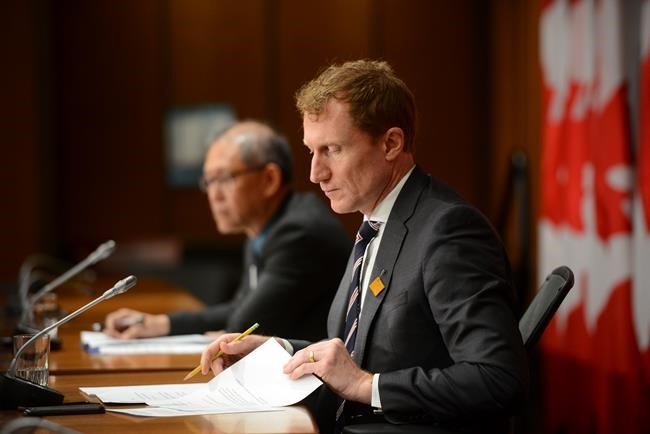Minister says Ottawa must respect choice of First Nations to hold powwows

OTTAWA - Canada's Indigenous services minister says Ottawa won't dictate terms to First Nations on holding ceremonies and powwows during a pandemic.
"If you believe in self-determination of Indigenous Peoples you have to respect choices even when you don't agree with them," Marc Miller said during a news briefing Friday.
Miller was responding to a question about a Manitoba First Nation organizing a powwow for next month. He said studies have shown that when decisions are made by Indigenous communities the medical results are better.
Cornell McLean, chief of the Lake Manitoba First Nation, said earlier this week that after careful consideration it was decided that the community's traditional powwow would go ahead in June. The chief said it would help bring healing to the community, about 160 kilometres north of Winnipeg, where people have been struggling under strict rules put in place by community leadership two months ago due to COVID-19.
McLean noted the federal government made it clear that Indigenous ceremonies won't be stopped during the pandemic after RCMP were dispatched to a sun-dance ceremony in Saskatchewan earlier this month.
Premier Brian Pallister joined Saskatchewan Premier Scott Moe in criticizing the federal government for sending mixed messages to First Nations about whether they have to follow provincial public-health orders. Pallister said he would bring up the concern during a call with Prime Minister Justin Trudeau on Thursday.
"We are not people who believe in two-tiered health," the premier said.
Miller countered that Indigenous leaders have told him First Nations people have long lived under a two-tiered health system and "they are the victims of it." Health outcomes on First Nations tend to be poorer than the Canadian average and care offered is significantly limited compared to urban centres.
"Those are the cards, I think, that Indigenous communities would say that they were dealt going into this pandemic and create that vulnerability that is exacerbated by COVID-19."
During its weekly update Friday, The Assembly of Manitoba Chiefs pandemic response team said there were no active cases of COVID-19 in self-identified First Nations people.
Dr. Marcia Anderson said guidance for ceremonial and spiritual practices was shared with leaders a month ago and is being updated to reflect the most recent information.
Anderson encouraged leaders to take precautions if they go ahead with cultural events. She suggested people could use individual hand drums in a line, rather than surrounding one drum singing together. She said all events should be held outside.
"We don't want to say don't do it at all, but we want to think about how we can be creative."
Grand Chief Arlen Dumas added that Indigenous leaders across the province were taking different approaches to holding events and ceremony. Some decided to remain in lockdown and cancel powwows.
"I'm proud of our community. I am proud of our region. I am proud of those things we are doing," Dumas said. "But I don't want us to get a false sense of confidence."
This report by The Canadian Press was first published May 29, 2020
— By Kelly Geraldine Malone in Winnipeg